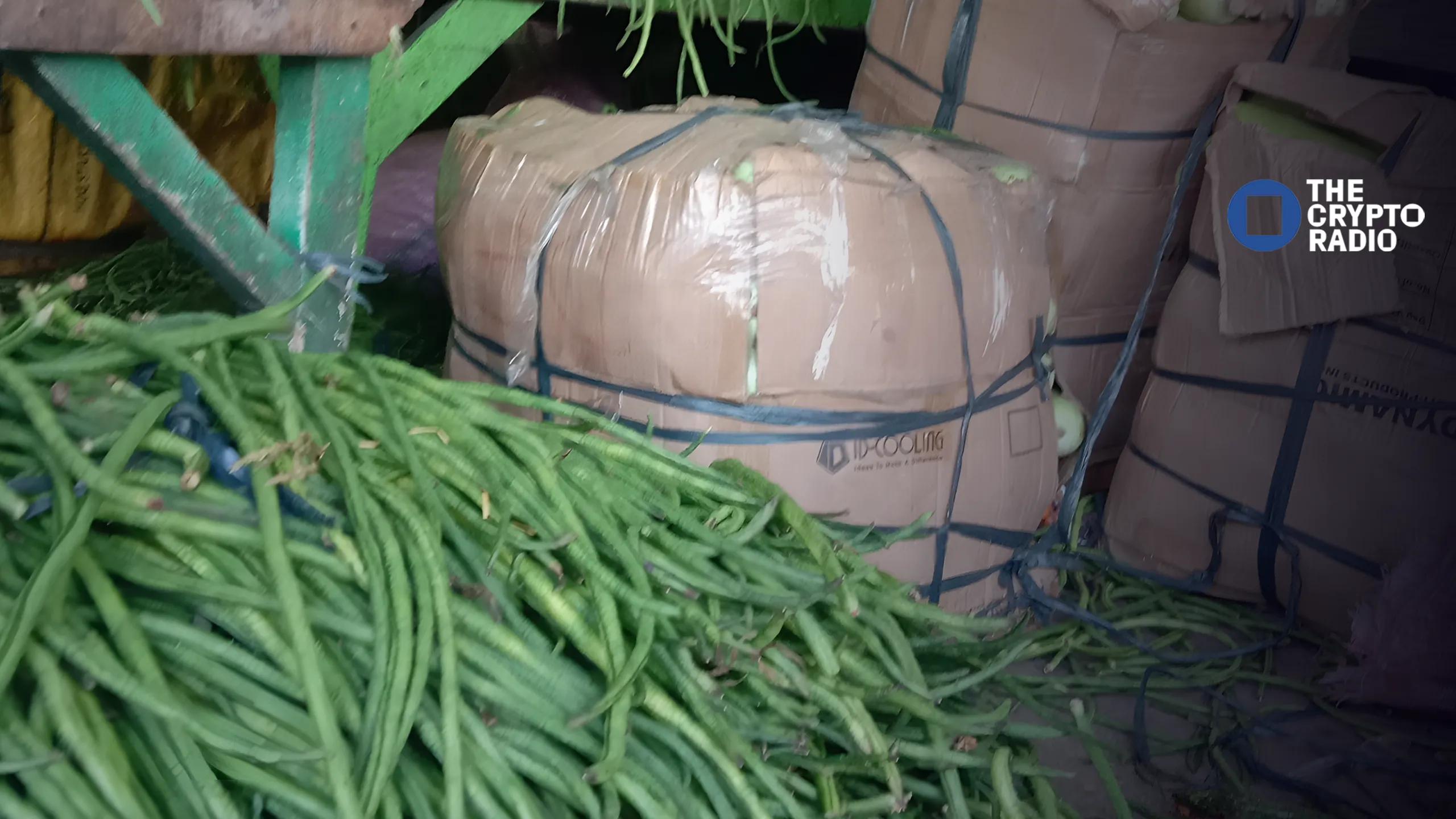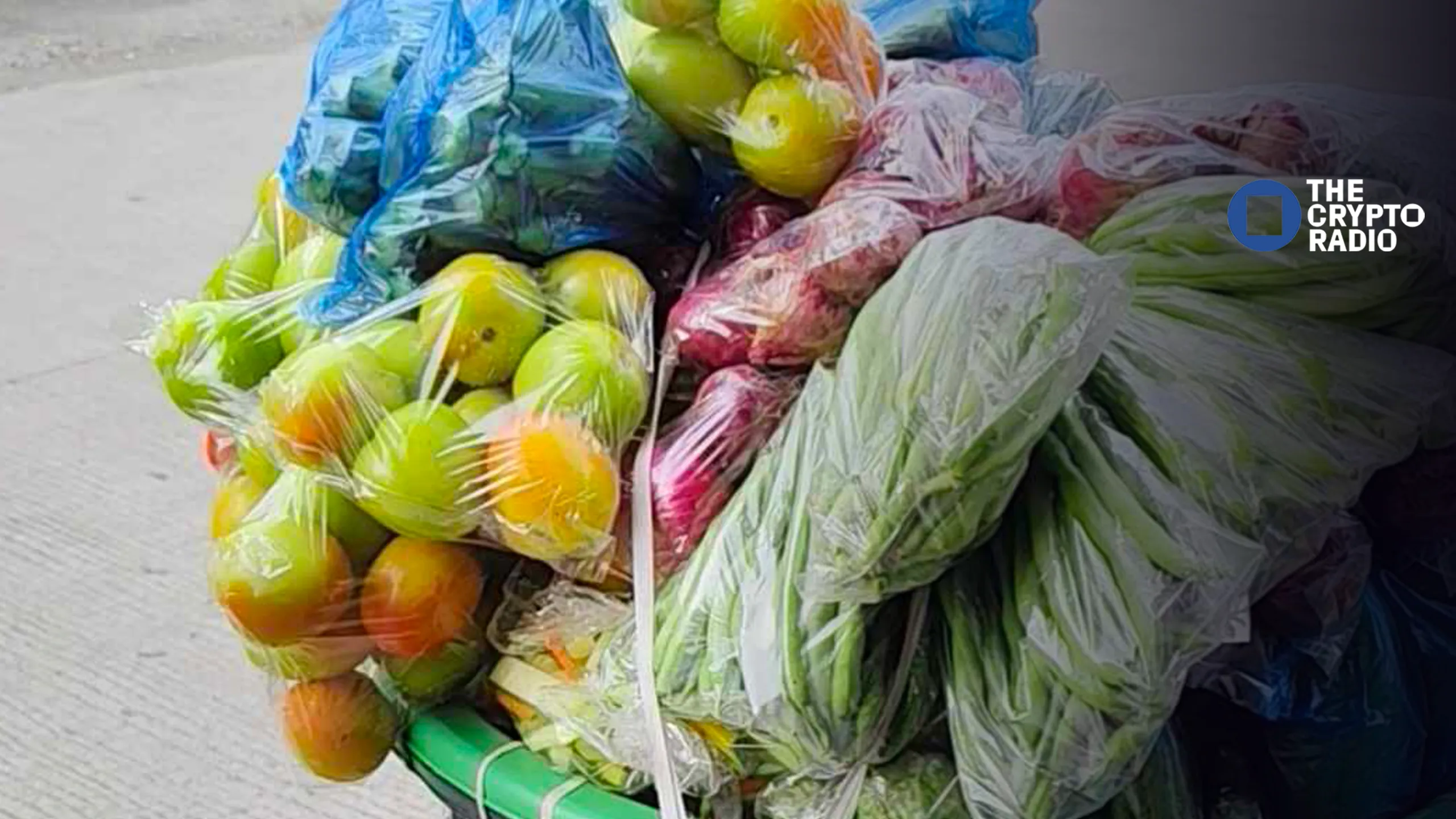How a vegetable vendor launched Web3 Davao using AI
RJ Salomo transformed the daily grind of street vending into smart contract mastery, turning poverty into purpose through artificial intelligence and community

The life of a vegetable vendor in the Philippines is far from the romanticized image of early morning markets.
According to SalaryExpert, vendors can earn as little as $3,000 a year, less than $10 a day. In the southern Philippines, where RJ Salomo sold vegetables in Davao City, those numbers could be even lower.
Some days, vegetables rot unsold. Other days, income barely covers the next day's supply. It's a profession that keeps millions of Filipinos at the poverty line, with limited prospects for upward mobility.
Yet Salomo's story challenges everything we think we know about who gets to participate in web3. He co-founded the local community Web3 Davao and, today, holds ambassador roles across multiple blockchain ecosystems, representing Core DAO as Regional Lead Ambassador, advocating for Peaq's DePIN solutions, and contributing to Base's growth in the Philippines.
His journey from selling vegetables to deploying smart contracts didn’t happen in spite of his background – it happened because of the persistence, adaptability, and resourcefulness that background instilled in him.
Starting with a loss
Most people who lose money to crypto scams walk away bitter. Salomo got curious. In 2023, while managing his vegetable stall and trading Forex to supplement his income, he encountered a project on the Polygon network. The project promised "auto-executing" smart contracts – a concept he didn’t fully grasp but found intriguing enough to invest in.
"I didn't know anything about smart contracts back then. They said it was auto-executing," he told The Crypto Radio. "I invested in the project on the Polygon network. Then, months later, I got rug-pulled."
For someone earning less than $10 a day, losing money to a scam could have been devastating. Instead, Salomo channeled his frustration into curiosity. The question that kept him up at night wasn't "Why did this happen to me?" but "How do smart contracts actually work?"
AI as the great equalizer
With zero programming background and limited resources, Salomo turned to an unlikely instructor: artificial intelligence. His first attempt at coding was embarrassingly simple, a "Hello World" smart contract copied and pasted from ChatGPT. But when it deployed successfully on a testnet, something clicked.
"I had zero coding experience. Then, luckily, there was AI," he explained. "I would type in, 'create a smart contract, hello world. Solidity.' It deployed successfully. Then I said, 'No, this can't always be this easy.'"
What started as copy-paste evolved into genuine learning. Salomo supplemented AI assistance with books, documentation, and eventually discovered MIT's open resources. The learning curve was steep, from Solidity to Rust for Solana development, but the vendor's discipline served him well.
The same focus that helped him wake up at 4 AM to buy fresh vegetables now kept him coding late into the night.
His breakthrough came at the Solana Breakpoint Hackathon, where his team deployed contracts to testnets with what he estimates was 80% AI assistance and 20% hard-earned knowledge.
For traditionalists who worry AI will replace developers, Salomo represents a different future, one where AI democratizes access rather than eliminates opportunity.
Building community from scratch
In 2023, at the Philippine Blockchain Week, Salomo met a long-time crypto veteran. Both had noticed a glaring gap: existing web3 communities weren't effectively reaching students. The idea for Web3 Davao emerged from this conversation, a community focused on education rather than speculation.
"I noticed that other communities weren't directly reaching students. That's why I co-founded Web3 Davao," he said.
Web3 Davao's approach differs from typical developer-focused groups. While some members learn coding, others find success through airdrops, testnets, and community participation.
One member earned significantly from the Venice AI airdrop after following Salomo's guidance, a success that brings him particular pride.
This inclusive approach reflects Salomo's understanding that web3 offers multiple pathways to opportunity, not just technical ones.
The poverty mindset advantage

Salomo says his time with the networking group Empowered Consumerism taught him a key lesson for web3: mindset matters more than background. The same resilience that helped him navigate the uncertainty of vegetable sales, days when produce might spoil, customers might not come, or profits might be nonexistent, prepared him for the volatility of learning blockchain development.
"The mindset, really. When you tell yourself that you can't do it, but you really think that you can, you can. If they did it, you should be able to do it too," he reflected.
This philosophy drives his educational efforts. Rather than focusing on prerequisites, he encourages newcomers to approach web3 with curiosity and persistence. The discipline required for street vending, early mornings, late nights, and consistent effort regardless of circumstances translates surprisingly well to blockchain development.
Today, Salomo's influence spans multiple blockchain networks. As Regional Lead Ambassador for Core DAO in the Philippines, he organizes local initiatives and educates communities about Core's decentralized infrastructure.
His role with Peaq focuses on promoting decentralized physical infrastructure (DePIN) adoption, technology with many use cases, including potentially helping vendors like his former self monetize unused data and bandwidth.
As a Base Contributor, he works to expand awareness of the Layer-2 network, supporting grassroots education and developer engagement. These aren't ceremonial positions; Salomo actively engages communities, applying the same grassroots approach that made Web3 Davao successful.
Educational barriers and breakthroughs
One of Salomo's biggest challenges is institutional resistance to web3 education. Many schools remain skeptical of cryptocurrency and blockchain technology, often viewing them through the lens of scams rather than innovation.
"Schools are really resistant to this kind of industry. Because they still think of Bitcoin as, probably, a scam," he observed.
To combat this, Web3 Davao focuses on practical workshops and hackathons. These hands-on experiences help students understand technology's potential beyond speculation, mirroring how Salomo himself learned through practical application rather than theoretical frameworks.
Salomo is particularly excited about the convergence of AI and DePIN. He envisions a future where people can monetize their unused bandwidth and data through blockchain networks, opportunities that could benefit vendors and small entrepreneurs throughout the Philippines.
"I'm really excited about DePIN because our data can actually be monetized. Like bandwidth, like our unused data can actually be monetized," he explained.
The AI-first philosophy
While some developers view AI as a threat, Salomo sees it as an essential tool for democratizing technology access. His experience challenges the notion that formal education is a prerequisite for blockchain development.
"For me, AI is just a tool. It shouldn't be a big deal that other developers think we're being replaced by AI," he argued. "Just use it as a tool."
This pragmatic approach extends to his teaching philosophy. Rather than insisting students learn everything from scratch, he encourages leveraging available tools to accelerate learning, a perspective shaped by his own resource constraints as a vendor.
While Salomo no longer sells vegetables full-time, he maintains his business on a smaller scale, partly as a passion, partly as a reminder. His story resonates because it's fundamentally about accessibility rather than exceptionalism.
Most web3 participants aren't computer science graduates or traditional tech workers. They're teachers, drivers, vendors, and students looking for opportunities their circumstances otherwise wouldn't provide.
In 2023, official government statistics reported that the Philippines had a poverty rate of 15.5% (or roughly 17.54 million Filipinos), according to Reuters. For many in this demographic, web3 represents not just economic opportunity but a chance to participate in building the future rather than being shaped by it.
The democratizing force
Salomo's transformation from a vegetable vendor to a multi-chain blockchain leader illustrates how technology can disrupt traditional barriers to advancement. His success isn't about abandoning his past but building upon it; the discipline, resilience, and community understanding that made him an effective vendor now make him an effective blockchain educator and leader.
The vendor who refused to let a rug pull define his relationship with crypto has instead redefined what web3 leadership looks like in the Philippines.
In a country where vendors can earn as little as $3,000 a year, Salomo's story offers hope that technology can be a bridge rather than a barrier. But more than hope, it offers a practical model: leverage AI, build community, stay persistent, and remember that every expert was once a beginner asking their first question about how blockchain works.




